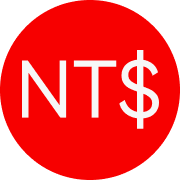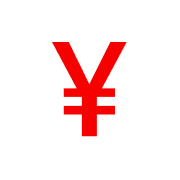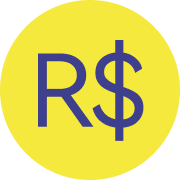
GVC to ZAR Converter and calculator


Conversion rates
Convert GVC to ZAR
Convert ZAR to GVC
GVC to ZAR chart
GVC to ZAR conversion data: Volatility and price changes of Global Virtual Coin in ZAR
| Last 24 hours | Last 7 days | Last 30 days | Last 90 days | |
|---|---|---|---|---|
High | 0.09185 ZAR | 0.1325 ZAR | 0.1437 ZAR | 0.2154 ZAR |
Low | 0.09018 ZAR | 0.08924 ZAR | 0.08924 ZAR | 0.04912 ZAR |
Average | 0 ZAR | 0 ZAR | 0 ZAR | 0 ZAR |
Volatility | % | % | % | % |
Change | -1.26% | -30.21% | -36.62% | -51.96% |
Global Virtual Coin information
GVC to ZAR market statistics
Current GVC to ZAR exchange rate
Global Virtual Coin to South African rand is falling this week.More info about Global Virtual Coin on Bitget
South African rand information
About the South African Rand (ZAR)
What Is the South African Rand (ZAR)?
The South African Rand, designated as ZAR and symbolized as R, is the official currency of the Republic of South Africa. It is also recognized in the Common Monetary Area, shared with Lesotho, Namibia, and Eswatini, where it circulates alongside local currencies. The Rand is subdivided into 100 cents.
The South African Rand is issued by the South African Reserve Bank (SARB). The SARB is the central bank of South Africa and is responsible for the production and distribution of banknotes and coins in the country. It oversees the monetary policy and maintains financial stability in South Africa, playing a crucial role in the economy of the nation.
What Is the History of ZAR?
The Rand takes its name from the Witwatersrand, meaning "white waters' ridge" in Afrikaans, which is the location of Johannesburg and a major gold-mining area. Introduced in 1961 when South Africa became a republic, it replaced the South African pound at a rate of 2 Rand to 1 pound.
Notes and Coins of ZAR
South African coins are issued in denominations of 1, 2, 5, 10, 20, and 50 cents, and 1, 2, and 5 Rands. Banknotes are available in 10, 20, 50, 100, and 200 Rand denominations. Since 2012, banknotes have featured Nelson Mandela on the front and the "Big Five" wild animals on the back. Commemorative notes released in 2018 feature Mandela's images.
Exchange Rate History of ZAR
Initially, the Rand was strong, trading at 1.40 USD in its early years. However, due to inflation and international opposition to apartheid, its value declined. By 1985, it traded at 2 Rands per USD and continued to depreciate, reaching over 6 ZAR/USD by 1999 and nearly 14 ZAR/USD by 2001. After recovering to about 6-to-1 against the dollar by 2006, it faced another decline due to a slowdown in the mining industry and global economic factors. In 2016, it reached an all-time low of nearly 18 ZAR/USD.
What Is The Common Monetary Area?
The Common Monetary Area (CMA) is a monetary union in Southern Africa comprising South Africa, Namibia, Lesotho, and Eswatini. It facilitates the free movement of capital and services among these nations, with the South African Rand (ZAR) serving as the primary currency. Within this union, while each member country has its own currency, the Rand is also legal tender and the local currencies are pegged at par with the Rand. This arrangement ensures economic stability and fosters cooperation among the member states. The South African Reserve Bank plays a pivotal role in influencing the monetary policy across the CMA, thereby promoting a higher degree of economic integration and facilitating seamless trade and financial transactions across these national borders.
Is ZAR a Stable Currency?
The South African Rand (ZAR) has historically exhibited a degree of volatility, influenced by a combination of domestic challenges and global economic factors. Internally, issues such as political uncertainty, governance concerns, and high unemployment rates have impacted its stability, while externally, it remains sensitive to global market sentiments and fluctuations in commodity prices, notably gold, given South Africa's status as a major producer. Although there have been phases where the Rand demonstrated resilience, its nature as an emerging market currency often subjects it to rapid valuation shifts in response to both local and international events. This characteristic renders the Rand more volatile compared to currencies from more economically stable regions, leading to a general perception of it being less stable, especially when measured against major global currencies like the US Dollar.
Popular conversions










Hot promotions
How to convert GVC to ZAR



Buy
Sell
| Merchants (trades/completion rate) | Price | Amount/limit Low to high | Payment methods | Zero fees Action |
|---|
Popular Global Virtual Coin Converter









Popular cryptocurrencies to ZAR










GVC to ZAR Conversion tables
| Amount | 18:39 today | 24 hours ago | 24h change |
|---|---|---|---|
| 0.5 GVC | R0.04526 | R0.04583 | -1.26% |
| 1 GVC | R0.09052 | R0.09167 | -1.26% |
| 5 GVC | R0.4526 | R0.4583 | -1.26% |
| 10 GVC | R0.9052 | R0.9167 | -1.26% |
| 50 GVC | R4.53 | R4.58 | -1.26% |
| 100 GVC | R9.05 | R9.17 | -1.26% |
| 500 GVC | R45.26 | R45.83 | -1.26% |
| 1000 GVC | R90.52 | R91.67 | -1.26% |
GVC to ZAR FAQ
What factors influence the conversion rate of GVC to ZAR?
Purchase other cryptocurrencies with similar market cap











Other crypto price predictions
 Bitcoin(BTC)Price predictions
Bitcoin(BTC)Price predictions Ethereum(ETH)Price predictions
Ethereum(ETH)Price predictions Celestia(TIA)Price predictions
Celestia(TIA)Price predictions Solana(SOL)Price predictions
Solana(SOL)Price predictions Worldcoin(WLD)Price predictions
Worldcoin(WLD)Price predictions Bittensor(TAO)Price predictions
Bittensor(TAO)Price predictions Dogecoin(DOGE)Price predictions
Dogecoin(DOGE)Price predictions PepeCoin(PEPECOIN)Price predictions
PepeCoin(PEPECOIN)Price predictions Pandora(PANDORA)Price predictions
Pandora(PANDORA)Price predictions ORDI(ORDI)Price predictions
ORDI(ORDI)Price predictionsDiscover more cryptocurrencies
Latest coin listings on Bitget











